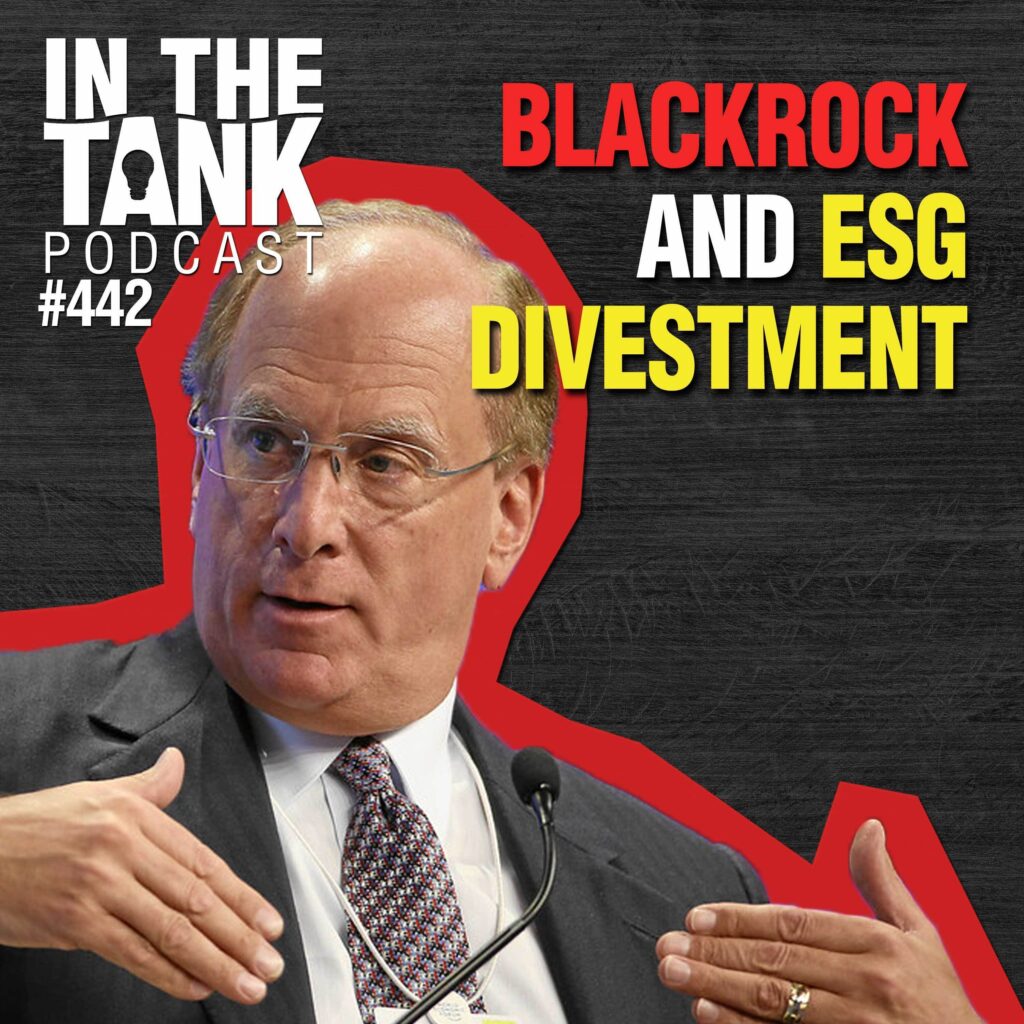1. What Are ESG Scores?
- In an attempt to secure vast amounts of wealth and influence over society, corporations, bankers, and investors, working closely with key government officials, have launched a unified effort to impose environmental, social, and governance (ESG) standards on most of the industrialized global economy. (ESG standards are also referred to as “sustainable investment” or “stakeholder capitalism.”)
- According to a report by KPMG, one of the world’s largest accounting firms, thousands of companies, located in more than 50 countries, already have ESG systems in place, including 82 percent of large companies in the United States.[1]
- ESG standards are designed to create a “great reset of capitalism” and to “revamp all aspects of our societies and economies, from education to social contracts and working conditions.”[2]
- ESG supporters plan to enact these radical changes by using ESG schemes to alter how businesses and investments are evaluated, so that instead of focusing on the quality of goods and services, profits, and other traditional economic metrics, companies—including financial institutions—are evaluated largely on their commitment to social justice and environmental causes, and then assigned scores so that companies can be compared, rewarded, or potentially punished.[3]
2. Which Metrics Are Being Used to Evaluate Businesses?
- Currently, there are numerous ESG models in place, however, they all share a common purpose of advancing causes elites or their left-wing allies favor. For example, the metrics developed by the International Business Council rank businesses in part on the “Percentage of employees per employee category, by age group, gender and other indicators of diversity (e.g. ethnicity).”[4]
- In other words, a company with the “wrong” ratio of Asians to Hispanic workers could be given a lower ESG score than its competitors with the “right” ratio, even if that business provides consumers with better products or services and earns higher profits.
- Other metrics include a company’s “carbon footprint,” the size of a business’s facilities, and the “Percentage of active workforce covered under collective bargaining agreements,” among dozens of others.[5] Incredibly, in at least one ESG scoring system, Facebook has been given a relatively low ESG score by some agencies for not censoring enough speech.
- Who decides what a “good” or “bad” racial quota is? Answer: The banks, corporations, government and United Nations officials, World Economic Forum members, and financial institutions using and writing the ESG standards, opening the door to tremendous conflicts of interest.
- The ESG “stakeholder capitalism” system has become popular because central banks, governments, and wealthy investors have tied trillions of dollars to ESG commitments. The Glasgow Financial Alliance for Net Zero (GFANZ), a group supported by the Biden administration, claims to have “more than 450 banks, insurers and other asset managers in dozens of countries” as members. Together, the members of GFANZ have pledged $130 trillion in assets.[6]
3. ESG Scores Pose a Significant Threat to Freedom
- ESG is a social credit scoring system, similar to models used by the Communist Party in China.
- The widespread use of ESG, coupled with massive amounts of money printing, allow central banks, financial institutions, corporations, and government to work together to severely restrict individual and economic rights by making an end-run around the U.S. Constitution and other limits on government power.
- In the United States, ESG scores can be changed at any time, in whatever way elites want. That’s by design.
- In Europe, there are plans to create a mandatory ESG system for the European Union. It would force nearly all large EU companies, and many small companies, to abide by EU ESG mandates, as well as every company in the “value chain.” That includes U.S. companies that do business in Europe in any way.
- In states like California, Illinois, and Massachusetts, state lawmakers are using public pensions and regulatory powers to coerce businesses into adopting ESG systems that they favor.[7]
- That means that if other states don’t act against ESG, officials in the European Union, California, Illinois, and Massachusetts will set the economic and societal standards for communities throughout the United States, whether they like it or not.
- States, local communities, and families should make these decisions, not central banks, foreign officials, Wall Street billionaires, multinational corporations, or the United Nations.
4. The Problem is Going to Get Worse
- As our world becomes increasingly more dependent on technology, it will become easier to track people’s activities, limit their speech, identify those who stand against elites and question their decisions, and control people’s behavior.
- We’re already seeing this with social media companies, who now regularly silence views and voices with whom they don’t agree.
- ESG systems will become especially powerful and worrisome for individuals if the Federal Reserve adopts a digital currency, which could help banks and potentially government officials track all spending across the entire U.S. economy, and perhaps around the world.
- The Federal Reserve Bank of Boston and MIT have already developed a pilot program to test a central bank digital currency, and it’s possible such a currency could be rolled out within the next five years—perhaps earlier.[8]
- Algorithms have already been developed to predict ESG scores for businesses who choose not to report their data. “Using only company size, location, and industry as inputs,” Moody’s “ESG Score Predictor” tool, which launched in 2021, “generate[s] predicted metrics for each firm to ensure full portfolio coverage.” Relying on its new tool, Moody’s has 100,000 firms in its database.[9]
5. How Lawmakers Can Help
- A federal law would be the best way to stop ESG nationwide, but because pro-ESG Democrats are running Congress and the White House favors these policies, nothing at the federal level is going to happen in 2022. States must take the lead, and they must band together to do it. One or two states cannot stop ESG on their own, but a large group of states can win this battle.
- There are about two dozen states currently working in some form to stop ESG, or to limit its impact, and a handful of states—including Massachusetts, Illinois, and California—that are seeking or have already imposed mandates to make at least some ESG metrics mandatory, or to coerce businesses to adopt them.
- States opposing ESG have adopted one or both of the following approaches:
- 1. State divestment from financial institutions that discriminate using ESG in some form. Usually, state divestment is focused on institutions that target the development and/or use of fossil fuels.
- 2. Bills that aim to eliminate all of ESG, not just metrics focused on environmentalism, by making it illegal for financial institutions to use social credit scores to discriminate against individuals or businesses.
- The second approach is the best option, by far, because it would make it illegal for financial institutions to effectively collude with corporations, banks, central banks, and others for the purpose of discriminating against individuals or businesses who do not align with the goals of their ESG metrics.
- Divestment bills typically focus the most on environmental and energy concerns, and they don’t make ESG discrimination illegal; they merely instruct the state to divest from businesses and organizations that use specified ESG metrics deemed detrimental to the businesses and citizens of the state.
- Policymakers who need assistance with ESG legislation, or merely want to report their activities for tracking, should contact government relations staff at The Heartland Institute, a national free-market think tank, by emailing [email protected].
NOTES
[1] Richard Threlfall et al., The Time Has Come: The KPMG Survey of Sustainability Reporting 2020, KPMG, December 2020, https://assets.kpmg/content/dam/kpmg/xx/pdf/2020/11/the-time-has-come.pdf
[2] Klaus Schwab, “Now Is the Time for a ‘Great Reset,'” World Economic Forum, weforum.org, June 3, 2020, https://www.weforum.org/agenda/2020/06/now-is-the-time-for-a-great-reset
[3] See the Business Roundtable’s new “purpose of a corporation,” at Business Roundtable, “Statement on the Purpose of a Corporation,” businessroundtable.org, July 2021, https://opportunity.businessroundtable.org/ourcommitment
[4] Jonathan Walter, lead author, Toward Common Metrics and Consistent Reporting of Sustainable Value Creation, World Economic Forum, Sept. 2020, http://www3.weforum.org/docs/WEF_IBC_Measuring_Stakeholder_Capitalism_Report_2020.pdf
[5] Ibid.
[6] Jeff Stein, “Financial Firms Announce $130 Trillion in Commitments for Climate Transition, but Practical Questions Loom,” Washington Post, Nov. 3, 2021, https://www.washingtonpost.com/us-policy/2021/11/03/climate-glasgow-bloomberg-carney
[7] For example, see Ali Zaidi, “INSIGHT: States Take Lead on ESG Investment Regulations While Feds Stand Still,” Bloomberg Law, Oct. 4, 2019, https://news.bloomberglaw.com/banking-law/insight-14
[8] MIT’s Digital Currency Initiative, “OpenCBDC,” dci.mit.edu, accessed Feb. 11, 2022, https://dci.mit.edu/opencbdc
[9] See Moody’s ESG report, titled “ESG Score Predictor: Applying Quantitative Approach for Expanding Company Coverage,” here: https://assets.website-files.com/5df9172583d7ee64ab607996/60ec66d0af57878032604495_ESG%20Score%20Predictor_090721.pdf




